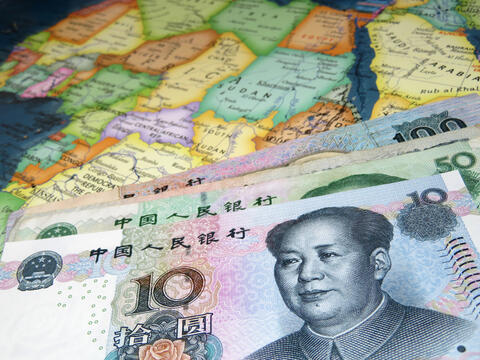Several countries in Asia have been announcing major investments in African countries, triggering questions about their motives and the prospects of their ventures.
Over the last two decades, Chinese investments in African countries amounted to more than $126 billion, including $41 billion in foreign direct investments (FDI).
Over this period of time, China has been quite open about its ventures in African countries, with official statements by the Ministry of Commerce pointing at an average compound rate of 18% per year from 2004 to 2016 in FDI in Africa.
Source
According to China’s Ministry of Commerce, Chinese foreign direct investment (FDI) in Africa grew at an average compound rate of 18% per year from 2004 to 2016.
Most of China's investments in Africa have been concentrated in Nigeria, Angola, Ethiopia, Kenya, Zambia, South Africa, the Democratic Republic of Congo, and others.
According to the Chinese investment tracker, China's billions have been injected into a variety of sectors; 33% in transportation, 33% in energy, 11% in metals, in addition to 11% in real estate.
If we were to look beyond the financial prospects of each investment China pumps into African countries, we will see how some experts have been linking them to Chinese foreign policy goals, calling them "practices of neocolonialism", particularly as they cite the many policy changes noticed in African countries after receiving Chinese investments.
Among the clearest policy goals scored by China has been changing positions in terms of Taiwan and recognizing it as an independent state. For example, Nigeria announced cutting ties with Taiwan in January 2017, a move that has been since linked to China's money in the west African country.
This week, the Japanese delegation to the 8th Tokyo International Conference on African Development conference pledged nearly $30 billion to investments in African countries, citing interest in "contributing to development in the continent".
Even though official remarks stressed the Japanese effort to "help" African communities amid global crises, particularly ones that emerged following the Russian war in Ukraine and the food crisis it has triggered ever since many believe that the Japanese financial input in African countries is meant to create a new market for its products in countries with more youthful populations.
In recent years, Japan has reported alarming figures in terms of its population growth. In 2021 alone, Japan's population shrank by 618,000, making it the world's oldest population. Around 30% of Japan's population is +65 years old, which marks a huge risk for its economic growth. On the other hand, Based on UN figures, Africa has the world's youngest population. Moreover, 70% of people who reside in sub-Saharan Africa are under 30 years old.
Not only does Japan need younger communities to maintain its economic activities in new dynamic markets, but it will also, very soon, need skilled and well-trained individuals to join its workforce and keep its wheel of production going.
Such pressing needs in Japan can provide explanations for the billions of dollars worth of investments in African countries.








